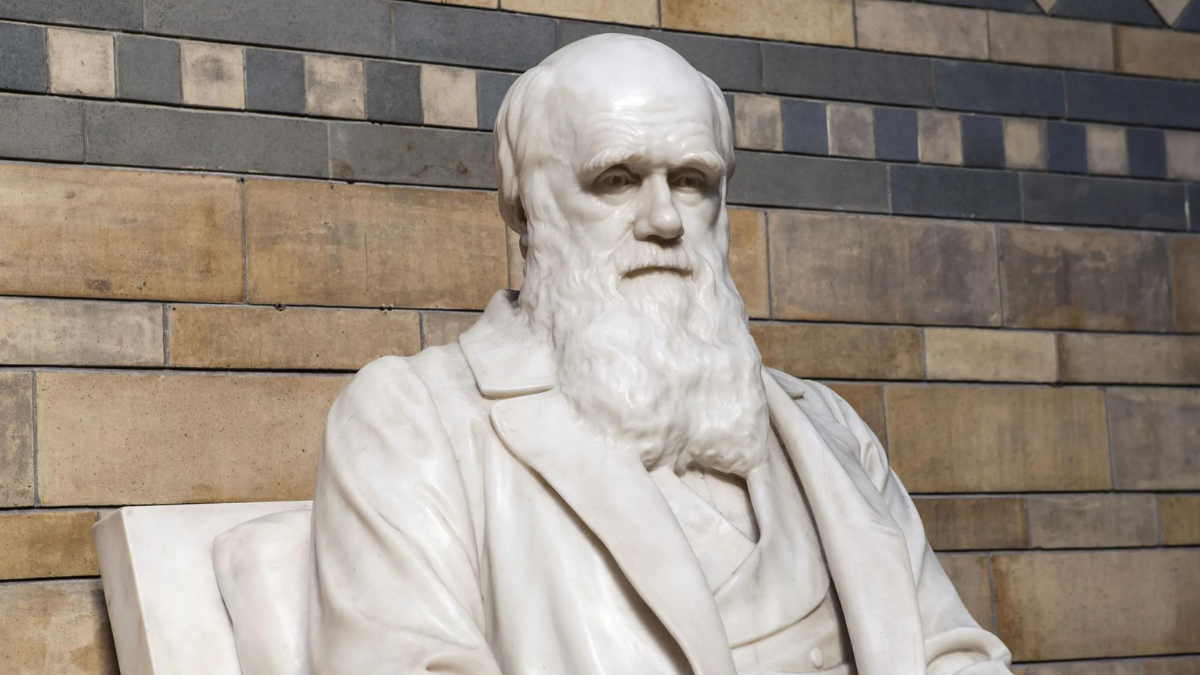

Darwinizing the Universe: A Theory That Explains Everything Explains Nothing
Why not ask who is the lawgiver of all these evolutionary laws?
11/14/23
John Stonestreet Shane Morris

In his book Doubts About Darwin: A History of Intelligent Design, Thomas Woodward described how early detractors of Darwin’s theory criticized the way it personified nature. After all, according to Darwin, “the origin of species,” (the title of his book) occurred “by means of natural selection.” Who did the selecting? Nature.
Darwin’s argument relied on an analogy between animal husbandry and what nature does when “she selects” only the fittest to survive, thus driving evolution. However, this analogy conflated the intentionality of human breeders with natural processes, implying that nature has a will and is trying to get somewhere—which is precisely the sort of intelligent causation that Darwinism supposedly refutes.
The result is a theory that often sounds suspiciously circular. Yet there are even bigger gaps in the Darwinian view of nature. The most daunting is how an intention-free universe made the leap from non-living matter to living things in the first place. This is a crucial question because, in conventional Darwinian thinking, only living things are subject to natural selection and thus evolve. The question here isn’t just how the fittest survived: It’s how the fittest arrived.
But what if natural selection could operate on nonliving matter? What if, instead of a process limited only to biology, Darwinian evolution was promoted to a fundamental law governing all physical reality? That’s exactly what some scientists have tried to do, most recently in a much-heralded paper published in the Proceedings of the National Academy of Sciences.
Entitled “On the roles of function and selection in evolving systems,” the paper proposes a new scientific principle called the Law of Increasing Functional Information, and it’s exactly what it sounds like. Lead author Robert Hazen of The Carnegie Institution for Science explains: “We see evolution as a universal process that applies to numerous systems, both living and nonliving, that increase in diversity and patterning through time.” In other words, everything evolves in a Darwinian manner, including “atoms, minerals, planetary atmospheres, planets, stars and more.”
How? According to the paper’s nine authors, nonliving systems evolve toward greater complexity if they are, 1) formed from many different components, such as atoms, molecules, or cells that can be rearranged, 2) are subject to natural processes that cause different arrangements to be formed, and 3) if only a small fraction of all these configurations survives or is “selected” for “function.”
Nonliving things, by definition, don’t “survive,” which is the function nature supposedly selects for in biological evolution. So, what “function” could nature possibly select in an atom or a galaxy? Believe it or not, these authors argue that existence itself is a kind of function, and that systems that tend to go on existing will be selected by nature, and that we know this, in part, because those systems do, in fact, exist.
Imagine a system of atoms or molecules that can exist in countless trillions of different arrangements or configurations. Only a small fraction of all possible configurations will “work”—that is, they will have some useful degree of function. So, nature just prefers those functional configurations.
Writing at Evolution News, intelligent design advocate David Coppedge points out the flagrant personification happening here. Nature “prefers … functional configurations?” It does no such thing, because at least according to Naturalism it has no goal, nor any notion of “function.”
In reality, the attempt to “Darwinize the entire universe,” as Coppedge puts it, is little more than a roundabout way of admitting how well-designed the universe is, and trying to come up with a force that allowed it to design itself. It’s an admission that, despite nearly two centuries of claims to the contrary, the cosmos acts like it has an end in mind. It’s asking us to assume a law that explains how everything came to be based only on the observation that things are. Set aside this circular reasoning for a moment and ask the real question: If there’s a law, who is the lawgiver?
This theory gets us no closer to explaining the complexity, function, purpose, design, and beauty we see in the universe if they’re not the handiwork of a Creator. Does nature have a preference for the kind of universe we have? Maybe so. But if “she” does, then that preference, itself, needs an explanation. Scientists trying to turn evolution into a theory of everything might expect nature to answer, “I am who I am.” But there’s only One who can truly say that. Why not give Him credit for a change?
This Breakpoint was co-authored by Shane Morris. For more resources to live like a Christian in this cultural moment, go to breakpoint.org.
Have a Follow-up Question?
Related Content

© Copyright 2020, All Rights Reserved.














